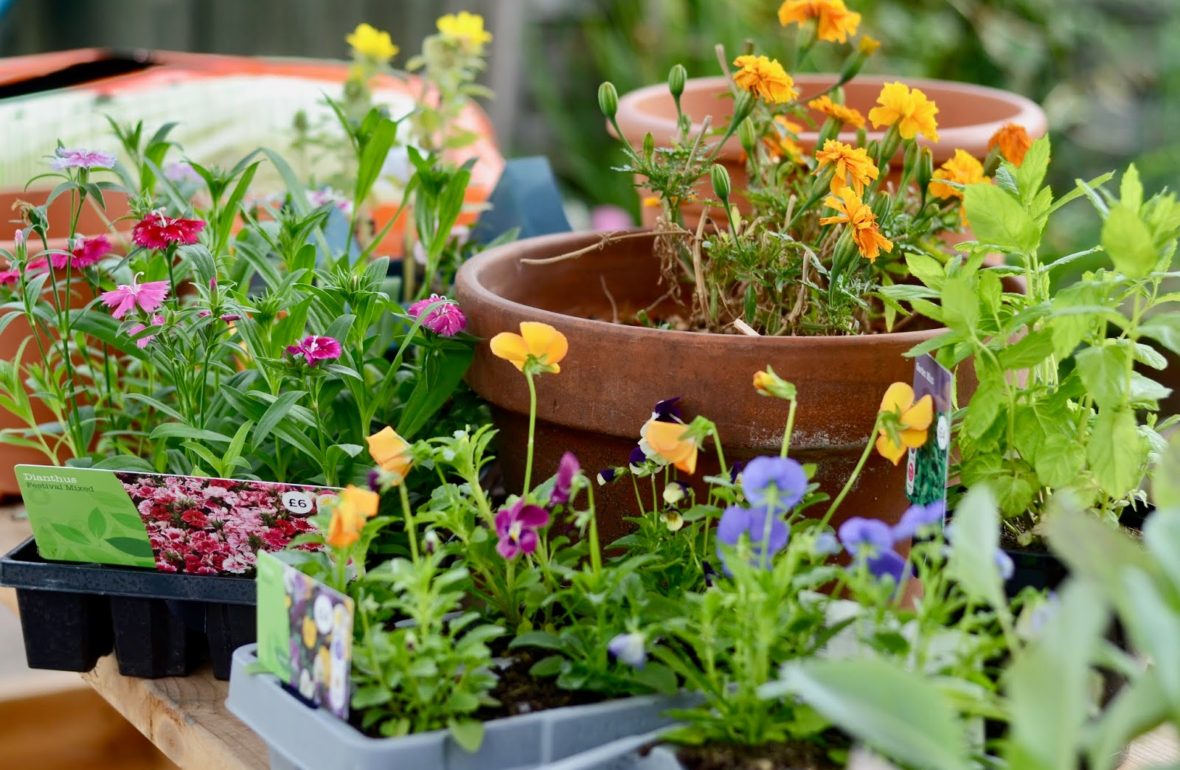
Put a seed in the ground and with a little luck, away it will grow. Water that seed, protect it from predators, give it a seaweed feed, and perhaps it will grow a little stronger. Poke that seedling too hard, over feed it, drown it in water, and the chances are you will kill it. So where is the line drawn? What turns us from being nurturing, all-powerful feeling gardeners, to boarder line plant serial killers? Ask any houseplant owner this question and I’m sure they’ll agree that the line is a lot thinner than you think.
Spring is a busy time in any garden. Starting seeds, planting out, protecting from slugs, watering. If springtime had a theme tune, it would be the hum of lawnmowers coming into life after a long winters nap in the shed. It would be the sound of hose pipes spraying gardens with H2O in a desperate attempt to shock the soil back into life now the sun has come back out to play. Perhaps if Vivaldi were alive today, his spring sonata would involve a few of these many gardening apparatus? It would certainly make more of a realistic interpretation of what spring sounds like in the modern day and age. Cant remember the last time I heard a violin being played in someone’s back garden.
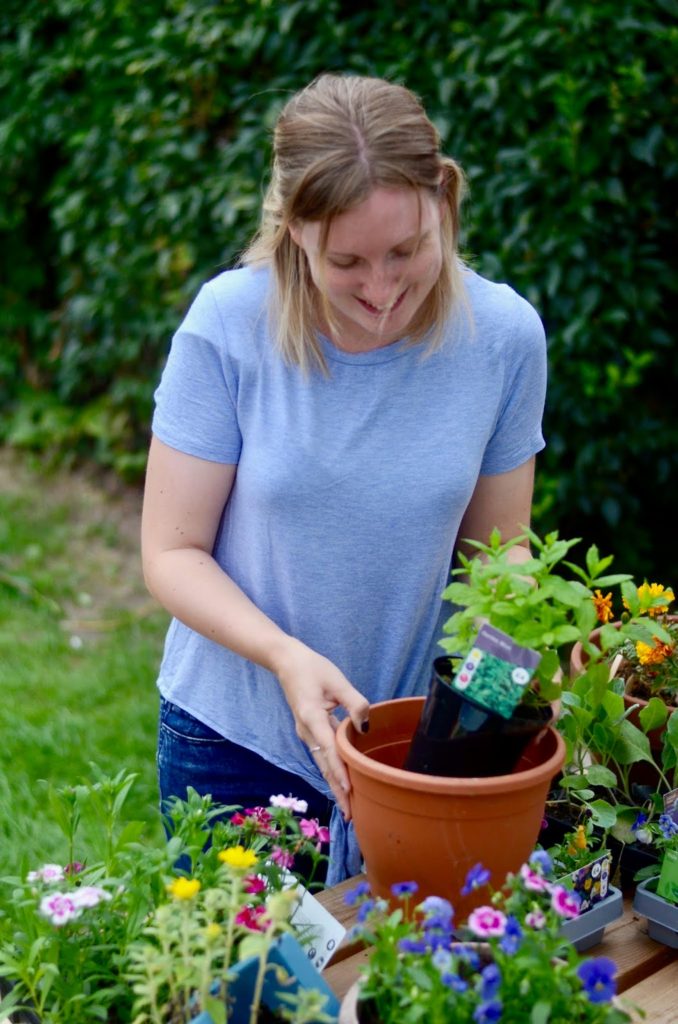
My first spring on the allotment plot was a complete whirlwind for me. Not only was I having to learn how to garden on the spot, I now had an audience of other plot holders who had started to show up and prepare their own patches of paradise for the growing season. Just like our back gardens, allotment plots are strangely disjointed places. Separated by nothing more than a thin fence, it’s essentially a group of people all working towards the same goal, but with a strange individualistic mind set. Most of us grow the same crops and flowers. Our soil type is identical, our enemies are all the same and disease spreads around like wildfire from garden to garden once it gets going. However, there we all are, working our own piece of land, often oblivious to anyone else around us.
What if ants acted the same way as we did and suddenly became territorial. They would fight over land and food, tearing their once spectacular burrow apart until it was all fragmented into individual dormitories. Capitalism would become the new philosophy of this strange ant world as poorer starving ants would beg from the rich. Ants would form gangs and a new criminal underworld would be formed with ants selling off stolen berries and bullying the weak into submission. Eventually they would all discover the beauty of a fallen fermented grape and spend the rest of their existence swaying all over our patios singing come on Eileen until we got sick of the noise and threw boiling water over them all.
We’re not really alone when we are gardening. When you tend to your flower borders, plant runner beans at your allotment plot or even mow your lawn, you are tending to a patch of land that sits upon our Earth. About 87% of the UK have gardens, front and/or back. That equates to around 23 million gardens. Or, better still, 23 million outdoor spaces that nature could potentially flourish in, assuming it’s not been paved over or had astro-turf plonked over it all. So when you are gardening, you are simply one of millions of gardeners all over the country, all helping nature to blossom.
The UK is one giant patchwork quilt of gardens, all unique to it’s individual caretakers particular likes and dislikes. But together, they all add up. So fence or no fence, when you are gardening you are anything but alone.
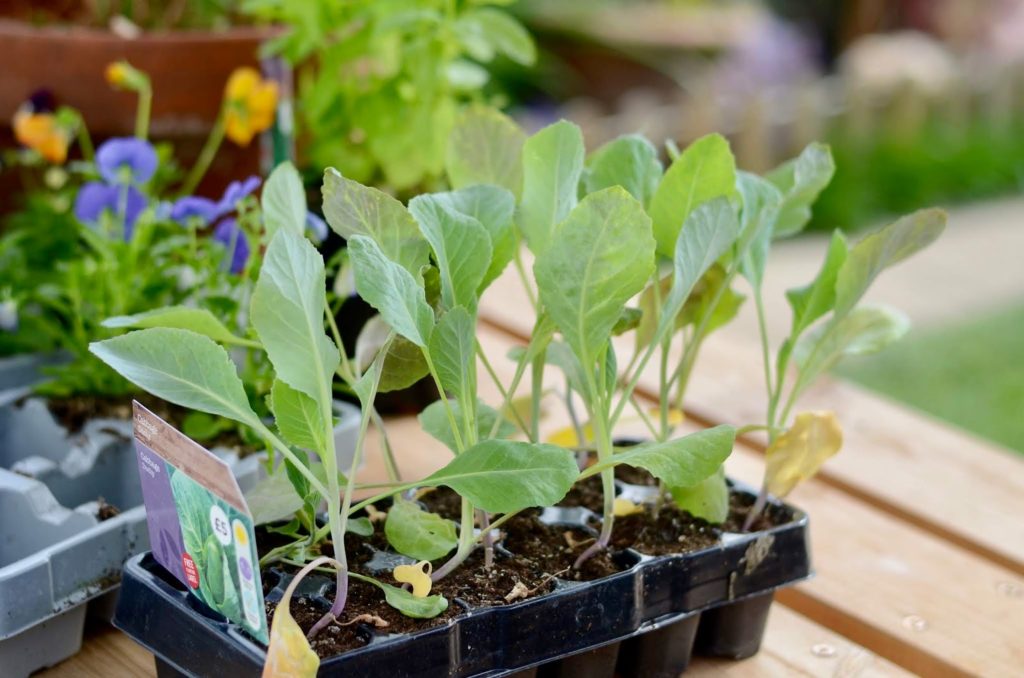
Back to my original question, what are the factors that take someone from gardener to plant serial killer? Well honestly, I think it’s just balance. During my first spring on the allotment plot, I wouldn’t leave my plants alone. I was absolutely convinced that should I walk away from the plot for anything longer than a couple of days, everything I had planted would inevitably die. I saw my role as the literal giver of life to those plants and allowed them no freedom from my human meddling whatsoever. I prodded new seedlings until their stems snapped, restaked sunflowers so many times the string would dig into the stems causing big ridges and allowing disease to seep into the wounds and I sprayed discoloured leaves with such a potent mixture of bicardenate of soda they literally burnt to death at my hands.
What I didn’t realise, and now thankfully do, is that becoming a helicopter gardener and allowing my plants no freedom to just exist, I had become their biggest predator. Which leads me to my next question, who are we gardening for?
We talk a lot in this country about gardening being a form of therapy. I myself have felt the affects of gardening on my own mental health many times. The feeling of placing your hands into the earth, or nurturing a seed to life, of just pottering around weeding, is incredibly calming and grounding. But when you are trying to actively grow a productive and healthy garden, it’s often important for us as humans to step back a bit. Let the plants be plants. Or in simpler words, get busy doing nothing.
A prime example of this at work can be seen in the art of watering. I say art, because like anything gardening related, there is often a specific way of doing something that to the non-gardeners eye might seem completely crazy and pointless, but to a gardener, becomes essential standard practice. Watering is just one of these arts and I have been lectured by fellow allotment plot holders on the exact way I should be watering my plants time and time again. So when I got unwell during my first spring and was unable to get to my plot and water it during a fluke heatwave, imagine my absolute shock to find that all my more established plants had utterly thrived and doubled in size! How could this have happened without an extensive, strictly planned and executed watering plan?
It turns out that if you don’t water a plant every single time it gets hot outside, the plant will simply fend for itself. It will send its roots further down into the soil and find it’s own source of water. These extra roots further ground the plant into the soil and actually encourage it to grow bigger! Imagine that. A plant fending for itself without the need for a human to intervene.
Sometimes, the best thing you can do is to do nothing at all. I think this lesson can be applied to lots of things in life, but the garden is where I first learned it. Plants don’t always want to be tampered with, sometimes plants just want to be left alone. Sometimes they don’t need our help. Why would they? They’ve survived on this Earth for millions of years without the intervention of any human being at all!
I used to look out at my garden and see it as this completely helpless plot of land. We all do it, in one way or another, the second we pull out that lawnmower in April. Or fire up the hose at the first sign of the sun in May. We love to be busy, we love to potter around and pull up weeds. It’s enjoyable, it’s therapy but sometimes all our gardens need us to do, is to get busy doing nothing at all.


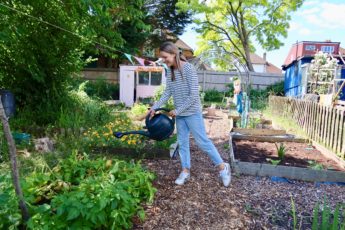
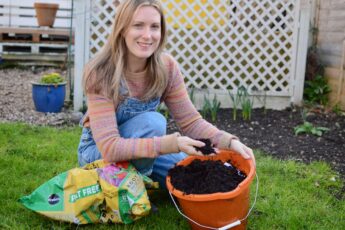
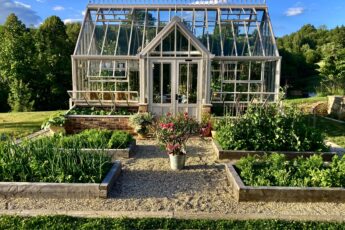
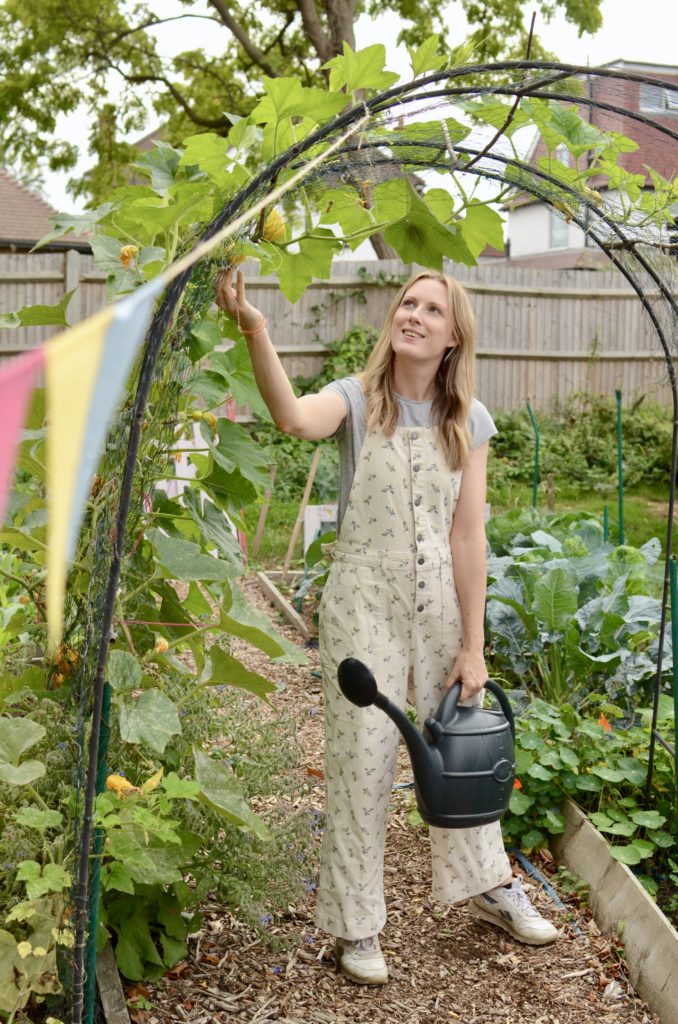
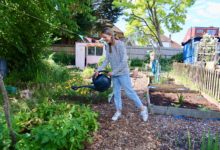
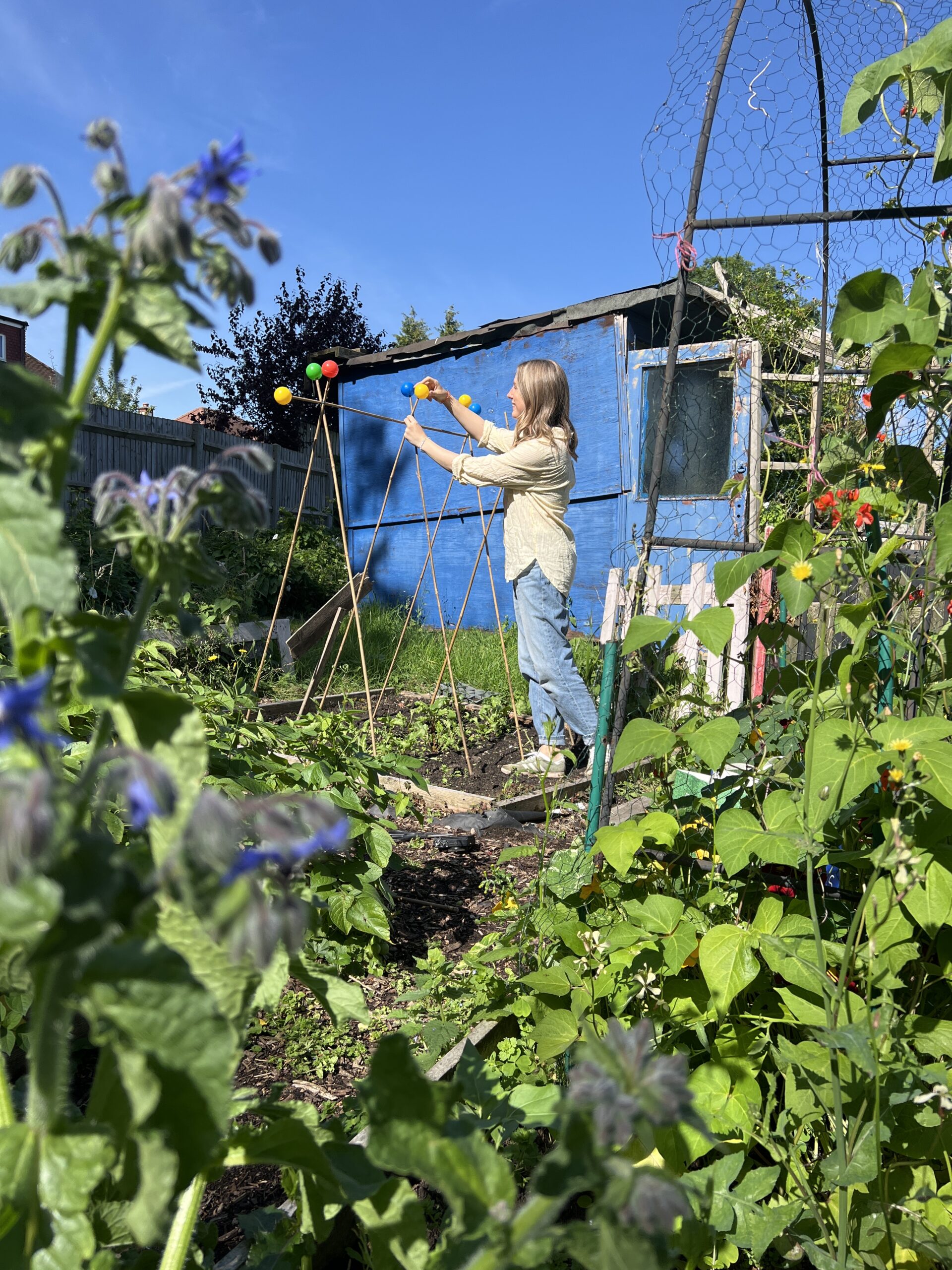
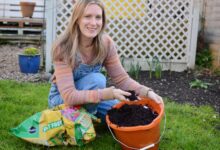


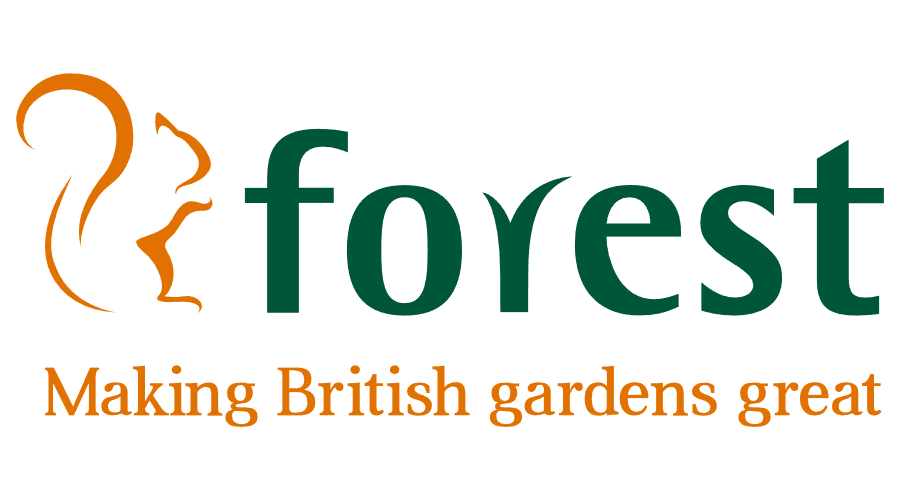



This is really reassuring to read as I was super committed when I got my plot in June this year, but winter drew in, nights are cold and dark and I haven’t been as much as I felt I should. But actually my winter veg are doing just fine by themselves and don’t mind my less frequent visits!
Absolutely! Plants have survived many years on this Earth with no help from us! Sometimes they do just want to be left alone! Haha! x